
How To Secure Your Ecommerce Website From Hacking & Other Risks
Ecommerce websites are often targeted by cyber attackers due to the large amount of personal customer data they store. Therefore, it is crucial for online businesses to implement ecommerce security measures to protect their customers' information. As we move further into 2024, attackers are expected to become even more sophisticated with the emergence of AI, making website security a top priority for all business owners.
What is ecommerce security and why it matters
Ecommerce security is an essential aspect of any online business. It not only protects your website and business information but also the sensitive data of your customers. It involves a wide range of technologies and protocols that ensure online transactions are completed in a secure and reliable manner. In today's digital age, customers rely heavily on online shopping, which means they enter their personal information like their name, address, email, phone number, and credit card details while making a purchase. Ecommerce security guarantees that customers can enter this sensitive information with the confidence that it will not be stolen by hackers. It also protects sensitive business information, making it a top priority for any online business. Good ecommerce security practices are crucial to your business reputation, but they are also vital to preventing financial losses and maintaining a competitive advantage over your competitors. Therefore, it is essential to invest in robust ecommerce security measures to ensure that your business and customer data are safe and secure at all times.
The Optus data breach of 2022 was a significant event that affected millions of Australian consumers. It resulted in the leak of sensitive personal information, including names, dates of birth, phone numbers, email addresses, and even driver's license or passport numbers. This put individuals at risk of identity theft, which is a severe violation of privacy and can cause significant financial and emotional turmoil.
Even almost two years after the breach, Optus is still trying to rebuild its reputation. The company faced a massive backlash due to the breach, resulting in a 25 per cent spike in negative media content. The negative coverage resulted in significant financial losses for Optus, as many customers lost trust in the company and took their business elsewhere. Optus also faced substantial fines for the data breaches. The breach was a clear violation of data privacy laws, and the company had to pay significant penalties as a result. This event serves as a reminder of the importance of data privacy and the need for companies to take comprehensive measures to safeguard their customers' information.
According to recent estimates, in 2024, the risk of cyber attacks on businesses is rapidly increasing. It is believed that around 93 per cent of all businesses could potentially be vulnerable to such attacks, which can be even more difficult to detect due to the rise of AI technology. The unfortunate reality is that many business owners remain unaware of the extent of these risks until they actually fall victim to an attack. Only 14 per cent of small businesses consider their cyber security measures to be highly effective, leaving a large majority of them exposed and vulnerable. In fact, 83 per cent of such businesses are not even adequately prepared to recover from the financial setback caused by a cyber attack. For small and medium-sized online businesses, the devastating consequences of such attacks can even lead to the shutting down of the entire business. That's why it is crucial to have a well-thought-out plan in place to significantly reduce the risk of any potential attack on your website.
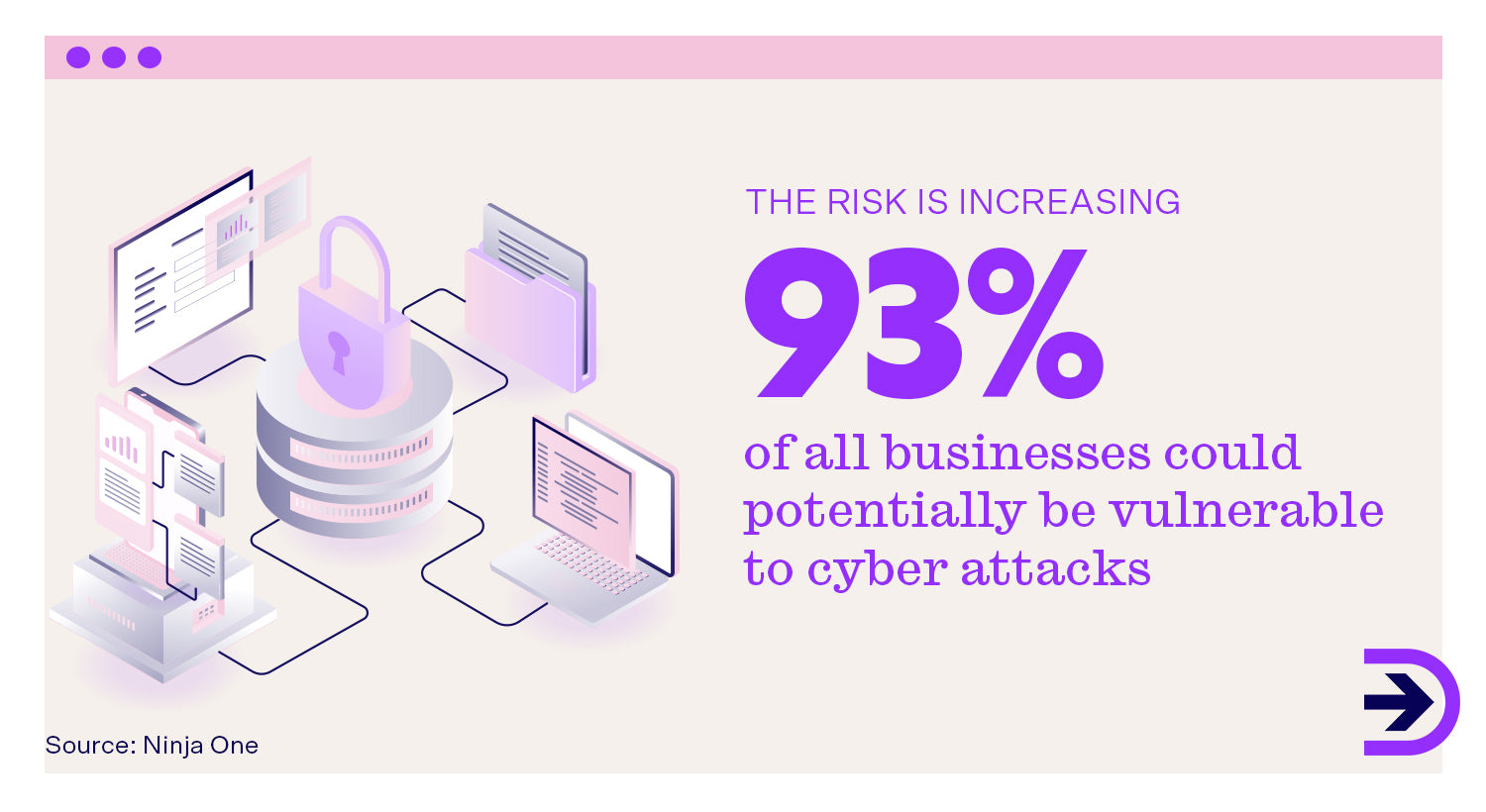
Types of ecommerce security threats
Phishing
Phishing is a fraudulent tactic in which attackers target your customers by sending them fake emails or text messages that impersonate your business. These messages are designed to trick customers into providing sensitive information, such as usernames, passwords, credit card, and bank account details. The attackers use your business name and logo to make the phishing attempt look genuine and often direct customers to a fake website where they are asked to log in. It's essential to educate your customers about this type of attack and provide them with guidance on how to identify and avoid phishing attempts.
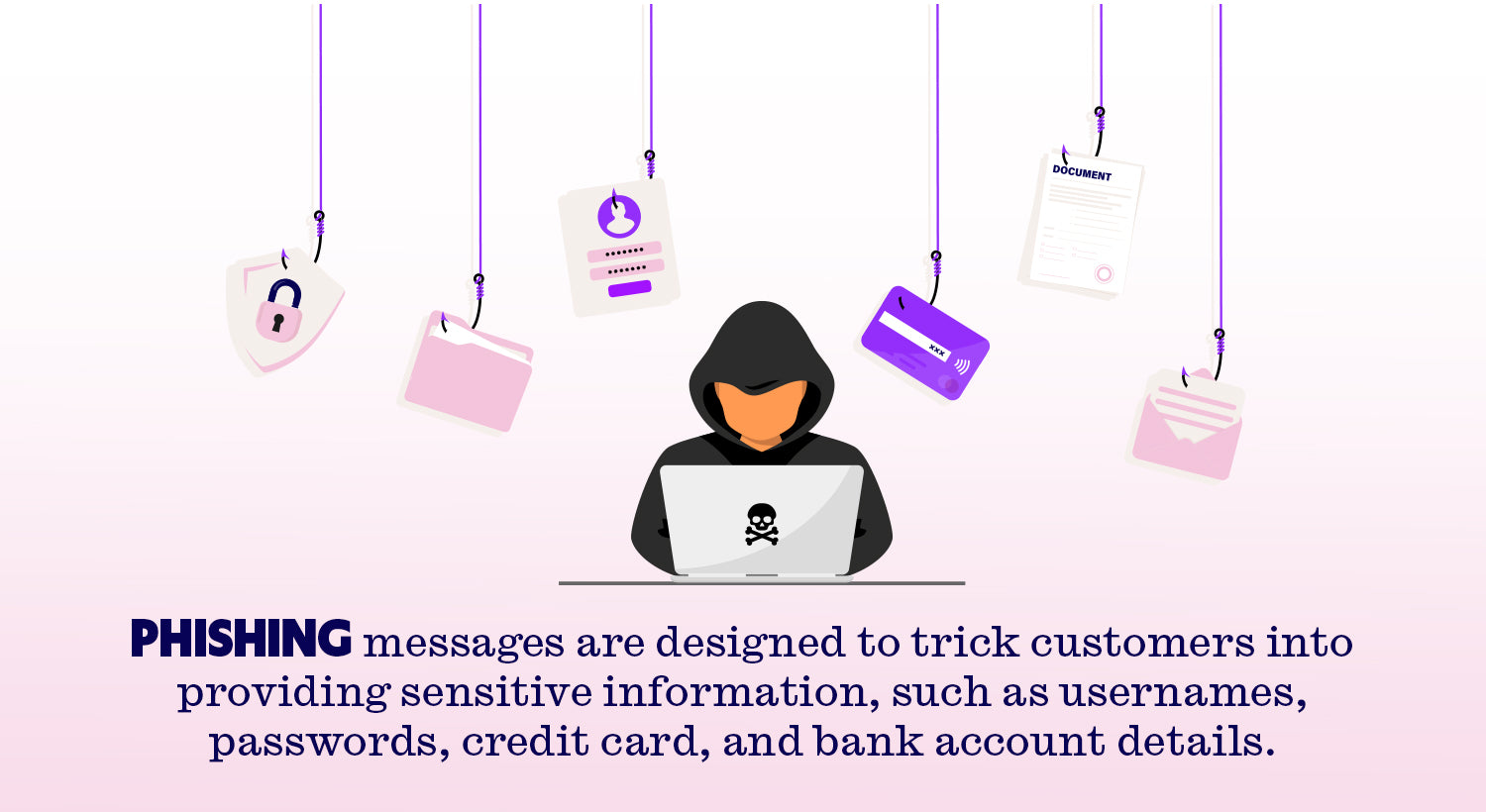
Financial fraud
This involves credit card fraud, where cybercriminals use stolen credit card data to make purchases on your website. It can also involve customer’s credit card information being sold on the black market.
Malware
This is when hackers install programs on your systems without your knowledge, damaging and infecting your website.
Distributed Denial of Service (DDoS) attacks
DDoS attacks can cause significant losses for online businesses, as they can overwhelm websites with untraceable traffic, resulting in crashes and making your website and products unavailable for customers.
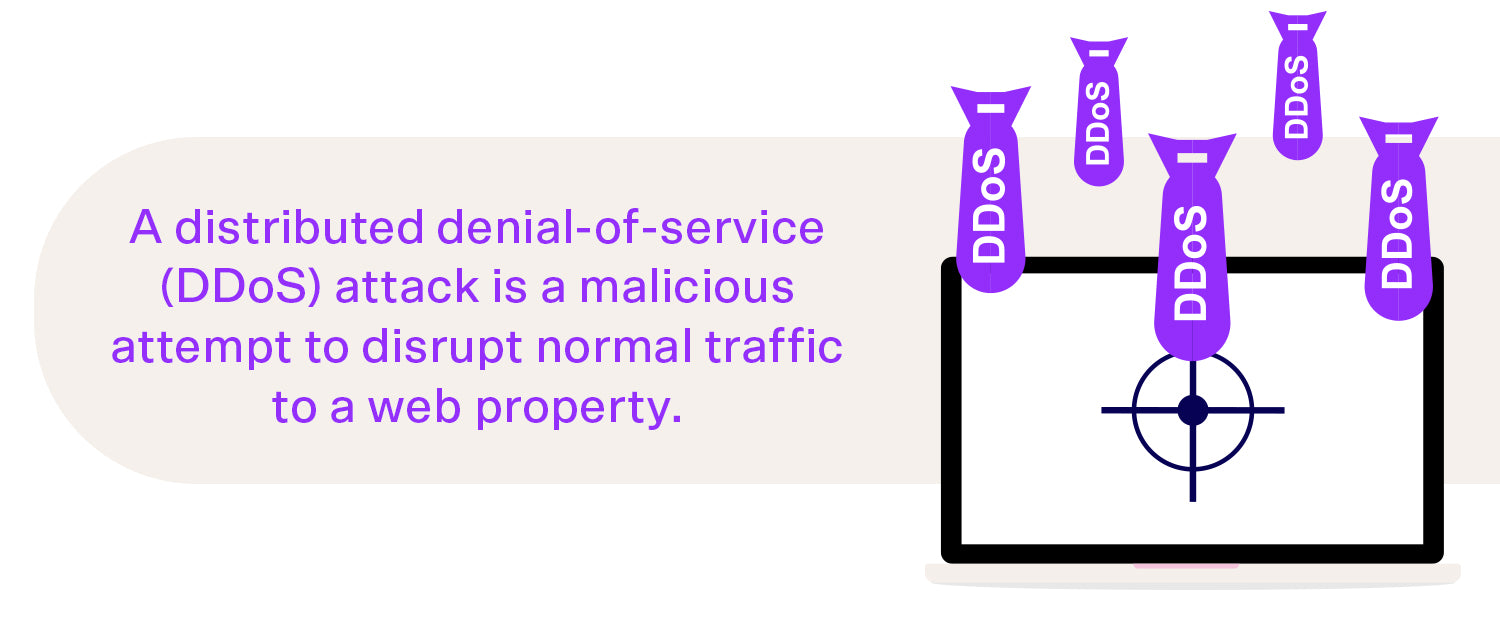
SQL injection
This is when hackers inject a malicious attack into your query form to gain access to your website's backend and database, allowing them to collect and manipulate data.
Cross-Site Scripting (XSS)
This is when hackers inject malicious JavaScript code into your website, which can negatively impact your website's security and allow them to access customer data.
E-skimming
This involves hackers injecting malicious code into your website to steal credit card information from customers who make purchases.
Brute force
When hackers use brute force, their objective is to break into your website by guessing your login password through a trial and error-method. They try numerous combinations of passwords until the right one is discovered. If you have selected a weak password, it becomes much easier for hackers to guess it correctly, and gain unauthorised access to your website.
How do you mitigate the risks of hacking and fraud?
There are various ways you can mitigate the risks of hacking and ensure that your ecommerce website remains secure.
Choosing a secure platform
As an ecommerce business owner, one of the most crucial steps you can take to protect your website is choosing a reliable and trustworthy ecommerce platform. The platform you choose can significantly impact the security, speed, and performance of your website, as well as your customers' satisfaction. A secure platform will ensure that your website is protected from hacking attempts and other security issues, helping you to focus on running your business with peace of mind.
One of the significant advantages of using a well-known ecommerce platform is that you are paying for the platform to be hosted and taken care of, rather than worrying about it yourself. This means that smaller businesses that do not have the time or staff to dedicate to website security can benefit greatly from using a secure platform. Your ecommerce platform should closely and continuously monitor all the websites using their platform and detect any potential security threats before they become problematic.
Not every ecommerce platform on the market will offer built-in security with their memberships, so it’s important that you check what is included before signing up for the first one you find. You’ll want your ecommerce platform to not only offer a secure platform but to have protection against the most common hacking threats. Some things to look out for when choosing a platform are that they provide regular security updates and offer secure data encryption. Offering secure payment gateways such as PayPal, implementing two-factor authentication, and providing dedicated customer support for addressing any security concerns are crucial measures.
The following platforms are secure with reliable servers and fraud prevention features:
-
Shopify
-
WooCommerce
-
Magento
-
BigCommerce
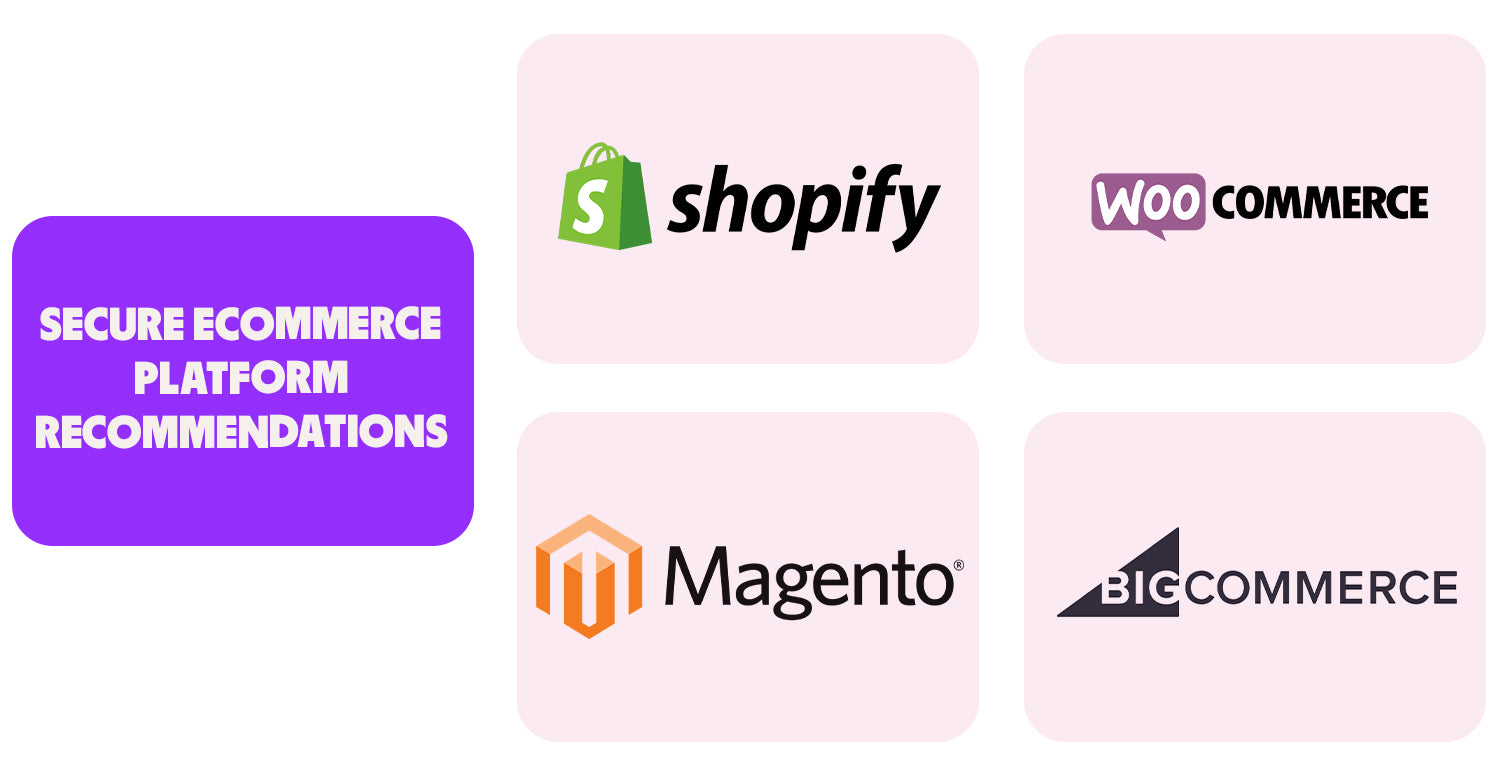
Use third-party and encrypted payment methods
Ensuring the security of your customers' data is crucial when running an ecommerce store. One effective way to achieve this is by using a payment gateway that is trusted and secure. This not only protects your customers' data but also eases their concerns about how their card details are stored. According to a survey, 83 per cent of consumers are worried about their credit card details being stored when shopping online.
Most of the best ecommerce platforms are compatible with popular payment gateways, and they won't store any of your customer data. It is advisable to choose industry leaders who have their own fraud detection in place. However, it's essential to ensure that the payment platforms work seamlessly with your website host. This will help prevent any technical glitches that may arise during the payment process and provide a smooth customer experience.
To secure your checkout page, you can install an SSL certificate. An SSL certificate encrypts data exchanged between your website and your customer's browser, thereby preventing hackers from intercepting sensitive information. Trusted ecommerce platforms like Shopify provide free SSL certificates for all users. However, if you find yourself using a platform that doesn't offer an SSL certificate, you will need to obtain one. Displaying your SSL certificate and other security badges is a great way to gain customer trust and help them feel safe when checking out.
Third-party organisations issue trust seals that verify your website's security. Displaying payment gateway logos also helps your business look legitimate and trustworthy. Most payment gateways offer fraud detection and prevention services as part of their package. However, to further ensure the security of your third-party payment gateway, you can encrypt and tokenise your customer data. Encryption turns data into unreadable formats that need to be decoded, making it impossible for hackers to access it. Tokenisation involves replacing numbers on credit cards with a random sequence, making it hard to trace the original data. Secure payment gateways can encrypt and tokenise data on your behalf, so you don't need to worry about that. However, to add tokenisation to your checkout, you can install many third-party apps through your chosen ecommerce platform.
Address and card verification system
Have you ever experienced the frustration of entering the incorrect card number or billing address when completing an online purchase, only to find that you cannot proceed with the checkout process? This is because most online retailers employ an Address Verification System (AVS) and card verification systems to ensure that the information entered by customers is legitimate and reduce the risk of fraudulent transactions.
An AVS compares the billing address provided by the customer with the address associated with their credit card to ensure that they match. This adds an extra layer of security to online transactions and helps to prevent unauthorised purchases. Similarly, card verification systems such as the Card Verification Value (CVV) require customers to enter a three or four-digit code printed on their credit card at the time of purchase. As credit card companies do not allow the storage of CVV codes, asking for this code during a transaction ensures that the customer has access to the physical card, and reduces the risk of cybercriminals stealing the information from a database.
If you are an online retailer using Shopify as your ecommerce platform, you can rest assured that fraud analysis is performed automatically on all transactions. Additionally, you can choose to enable AVS and CVV verification for added security. If either of these verifications fails, Shopify will automatically decline the transaction, ensuring that the purchase is not placed and reducing the risk of financial fraud for both your business and your customers.
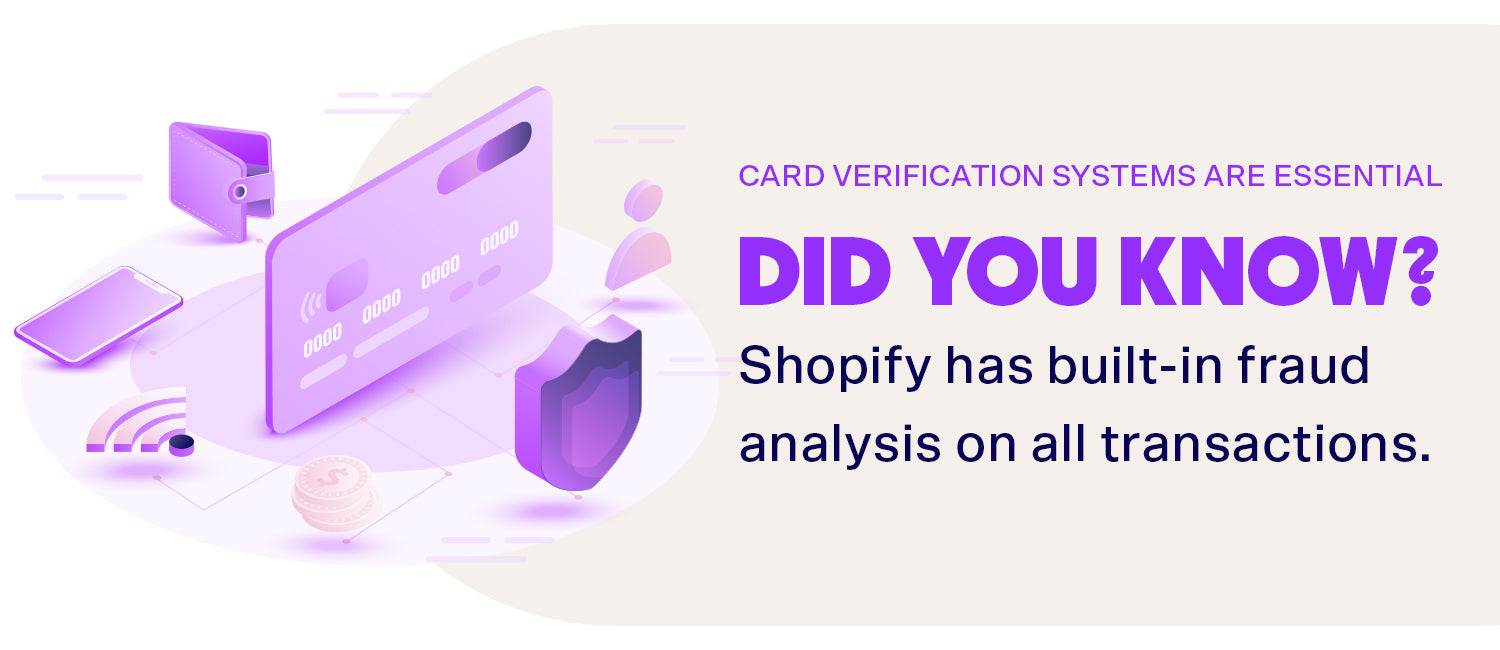
SQL checks and reviews
Online businesses face a constant threat of SQL injection attacks that could compromise their website and the sensitive data they hold. Hackers use SQL injection attacks to exploit vulnerabilities in a website's database. By inserting malicious code into input fields, they gain access to sensitive data such as customer information, credit card details, and other confidential data. Therefore, it's crucial to conduct regular checks and reviews of your website's database to ensure its security.
One way you can strengthen your website's defences against SQL injection attacks is by performing SQL checks. SQL checks involve examining your website's database queries and input fields to uncover any weaknesses that could be exploited by cybercriminals. By identifying and patching potential SQL injection points, you can reduce the risk of data breaches and unauthorised access to sensitive information.
In addition to regular SQL checks, it's also essential to conduct reviews of your website's codebase and database architecture. These reviews can help you identify and eliminate any potential security loopholes that could be exploited by cybercriminals. You should ensure that your website's code is up-to-date and that your database architecture is secure.
To make the process of regular security checks more automated, you can set up site scanners that run periodic checks on your website and alert you to any vulnerabilities before they become a major issue. These scanners can help identify any potential SQL injection points and other security risks, allowing you to take proactive measures to protect your website and your customer's data.
Update your website
It is crucial to keep your ecommerce website up to date with the latest software and security updates to ensure its security and integrity. Cybercriminals are always on the lookout for vulnerabilities in websites that they can exploit to gain unauthorised access and steal sensitive information. To prevent this from happening, software vendors regularly release updates that address newly discovered vulnerabilities and patch security flaws. However, failure to update your website's platform, plugins, and software leaves it vulnerable to exploitation by cybercriminals.
Most ecommerce platforms have automated security updates that ensure platforms and plugins are updated regularly. However, some platforms require manual checks and updates. In such cases, it is essential to implement a regular schedule for updating your website's components, ensuring that critical security repairs are applied promptly.
In addition to updating your website's software components, it is also important to manage and regularly update your security certificates, such as your SSL certificate. Security certificates ensure that your customers know your site is secure and cannot be accessed by any outside parties.
Back up your website regularly
As we have discussed, cyber attacks and data breaches have become a major concern for ecommerce businesses. If your website is attacked or suffers data loss, it can lead to significant downtime and even the complete loss of critical business data. To prevent such scenarios, it is important to have up-to-date backups of your ecommerce site.
Regularly backing up your website's files, databases, and configuration settings is crucial for ensuring that you can quickly restore your website to a previous state in the event of a cyber attack or technical failure. Ideally, you should be backing up your website every three or so days, or any time you make an important website update.
Fortunately, there are many apps and plug-ins that you can add to your chosen ecommerce platform to help implement automated backup solutions. These solutions regularly capture and store copies of your website's data in secure, offsite locations. This provides an additional layer of protection against data loss caused by cyber attacks or technical failures. However, it is not enough to simply have backup systems in place. You should also test your backup systems regularly to verify their integrity and reliability. This ensures that you can rely on your backup systems to restore your website to a previous state if needed.
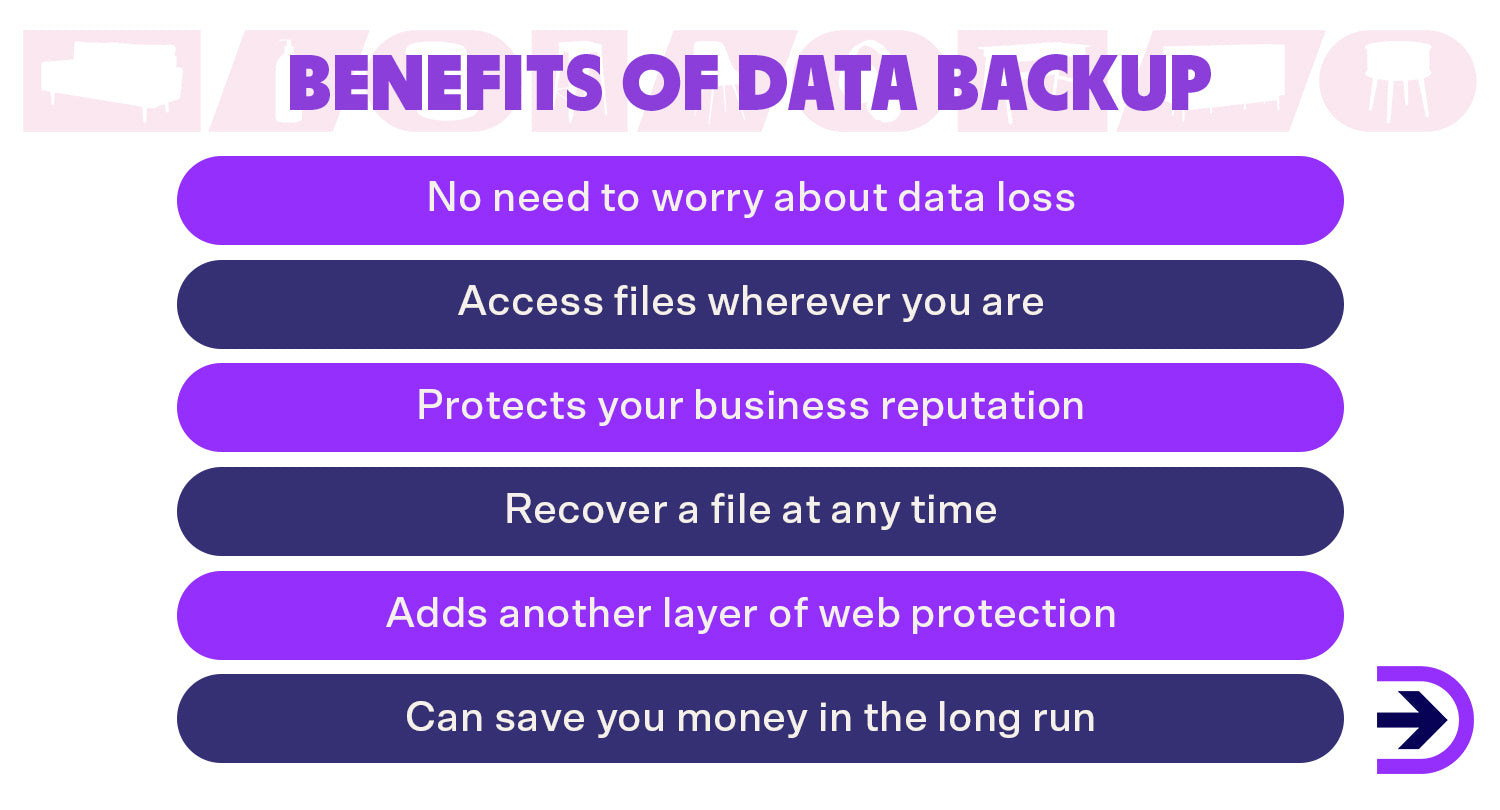
Summary
We cannot understate how important it is that your website security is robust in 2024. Ensuring you have a secure platform to host your website, use protected payment and verification methods, and perform regular website updates and backups are just some of the ways to protect your ecommerce website in today's digital landscape. Protecting sensitive user data will help you avoid data breach fines, improve your brand image, and increase customer trust. All of these factors are essential for the success of your online store.
FAQs
Why is website security so important in ecommerce?
Website security is vital for any online business as it helps protect your customer and business data from hackers. It also helps you maintain your business reputation, retain customers, minimise sales losses, stay ahead of your competitors, and reduce financial risks.
What are the best ways to secure my ecommerce website from hacking?
The best ways to secure your ecommerce website from potential threats include:
1. Choosing a secure ecommerce platform
2. Using an SSL certificate
3. Using third-party payment platforms
4. Using address and card verification
5. Conducting SQL checks and reviews
6. Performing regular website updates and backups
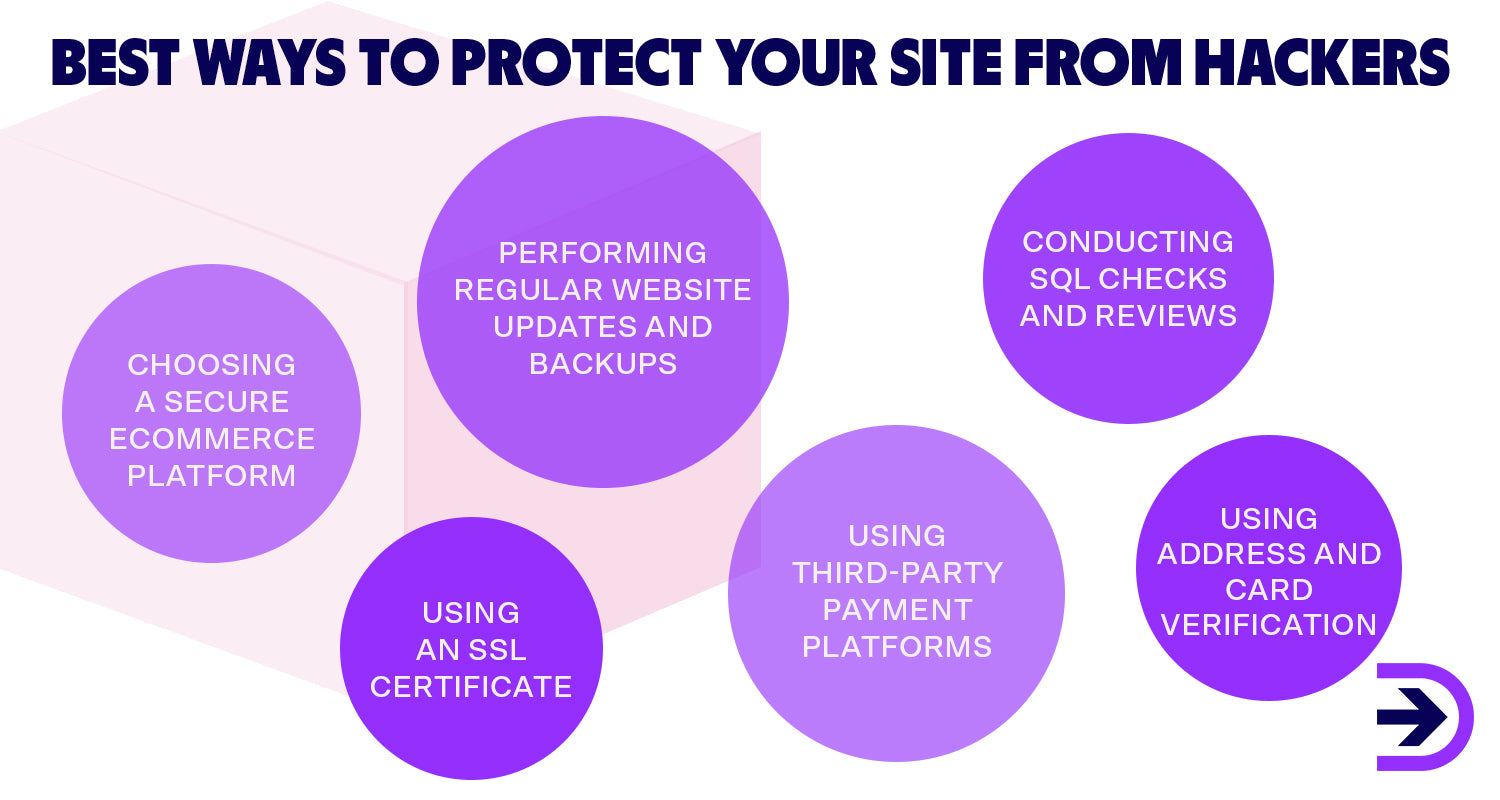
What are some security threats to ecommerce websites?
Some of the threats to ecommerce website security include:
-
Phishing
-
Financial fraud
-
Malware
-
Distributed Denial of Service (DDoS) attacks
-
SQL injection
-
Cross-Site Scripting (XSS)
-
E-skimming
-
Brute force attacks








